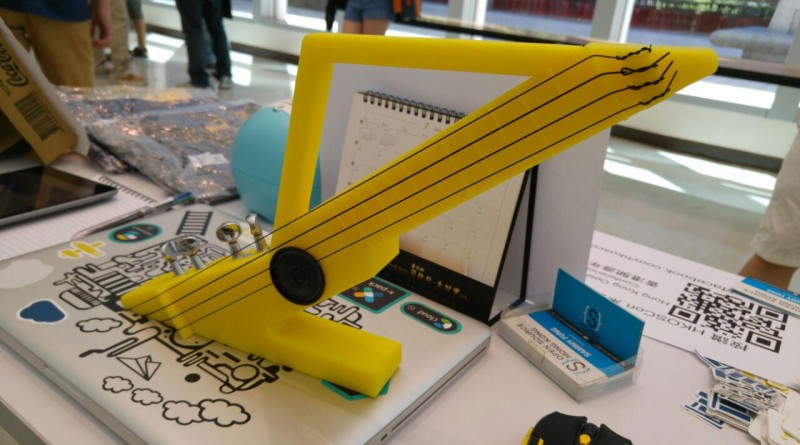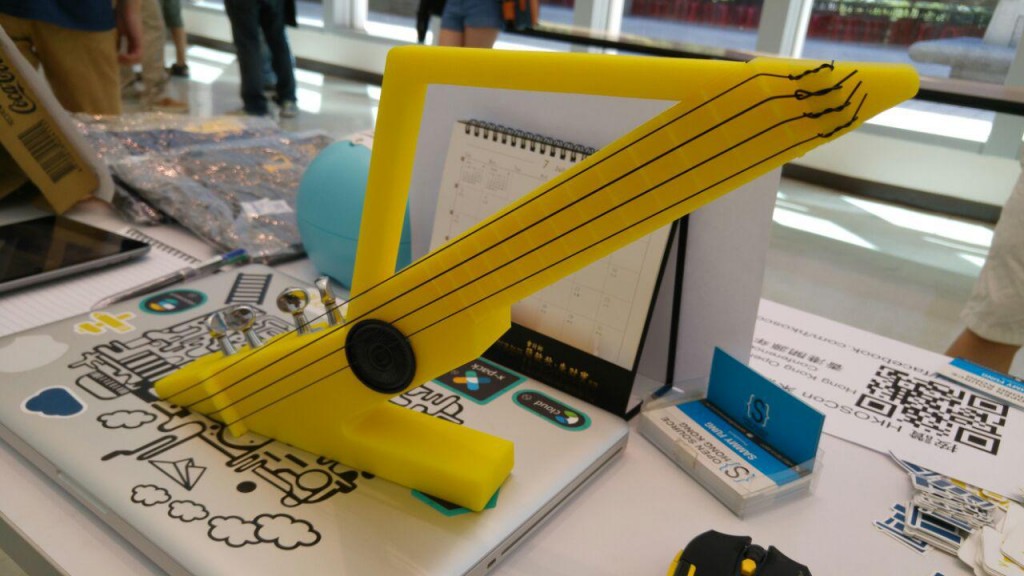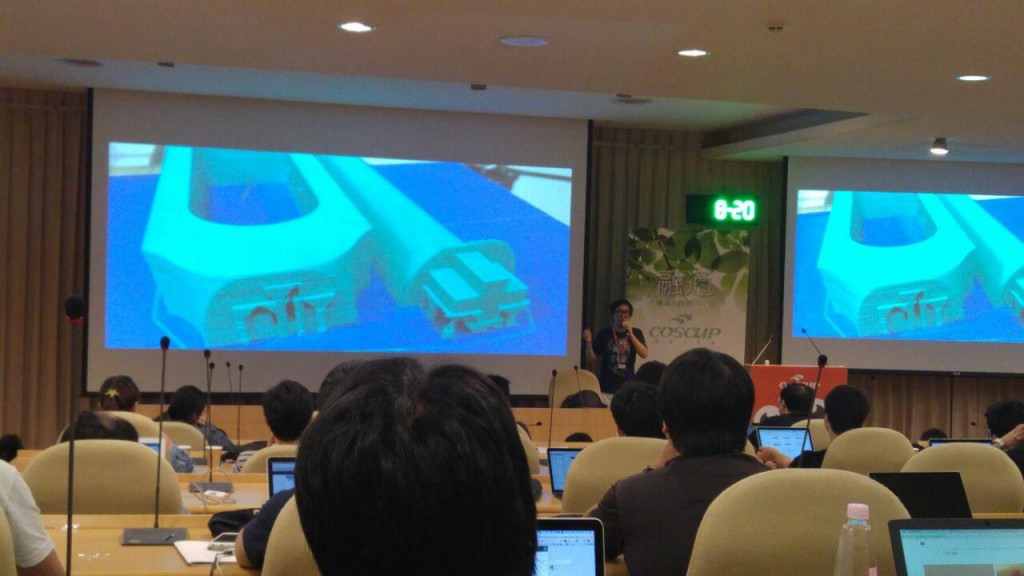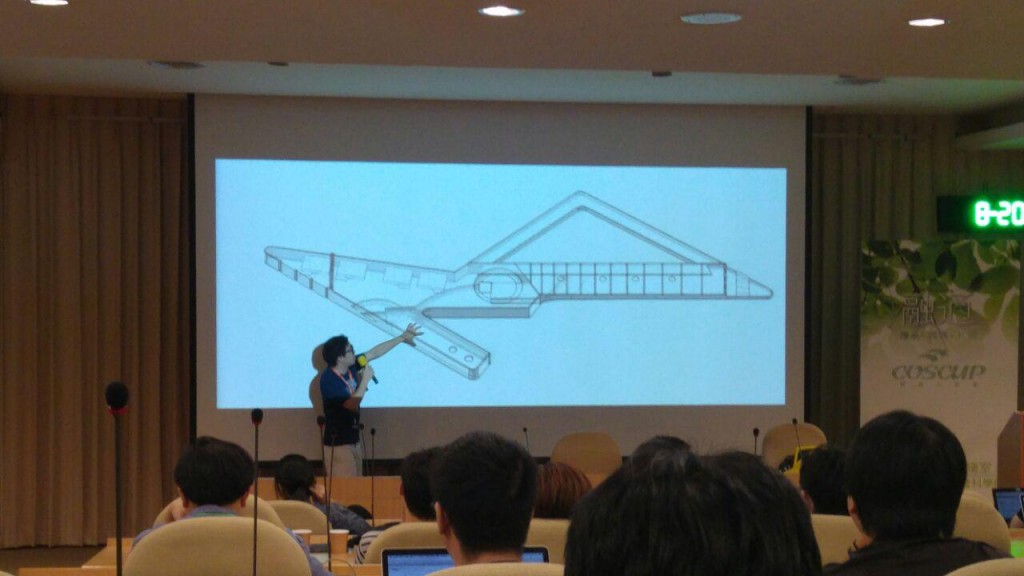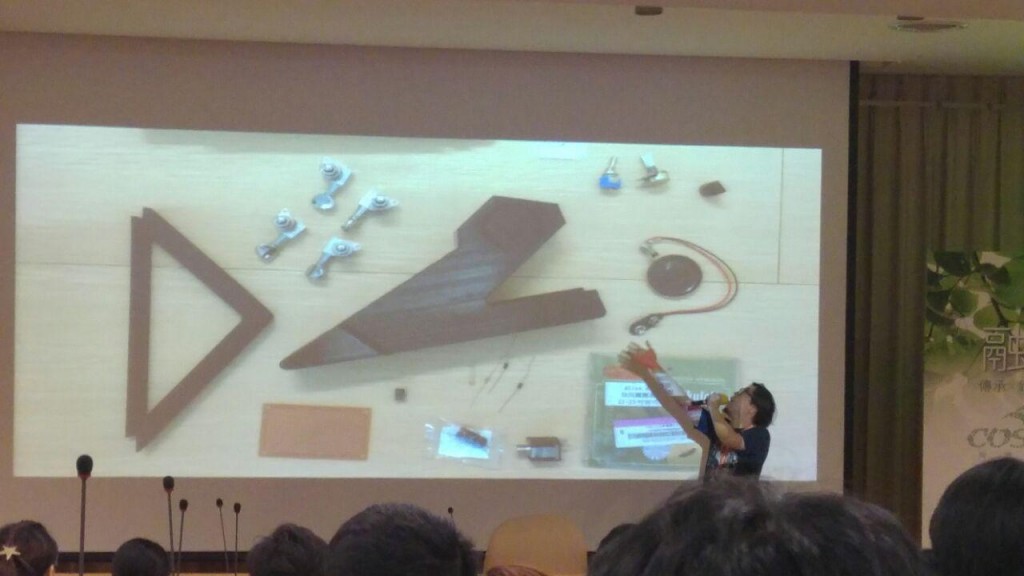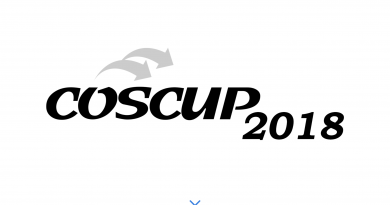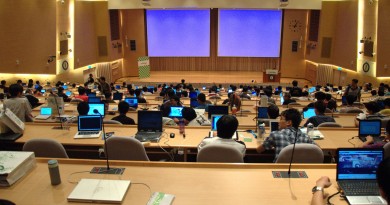[COSCUP 2016] DIY your musical instrument: The first electric Ukelele in open hardware design
Few of hot themes this year at COSCUP 2016 are “open source” in hardware world: Internet of Things (IoT), Open Source Hardware,
“DIY your musical instrument: The first electric Ukelele in open hardware design” (自己的樂器自己做:第一把開放硬體設計的電烏克麗麗). Penk is speaker and designer of the first “open” electric Ukelele.
I tried his electric Ukeleles at booth area before his talk. Body of 2 electric Ukeleles are printed by 3D printers, strings and electric components are added to build this 2 electric Ukeleles. Penk said that speaker and amplifier are installed as built-in electric components, so no external amplifier & speakers and connector are not required.
At Penk’s presentation, he mentioned that the dream of Rock & Roll is looking for the dream, make it happens. He read a playable Ukulele with no supports from a web site, but it is difficult to print it without broken parts.
So, he create a new design as an alternative, which are separated into 3 components for 3D printing, they are the handle, the neck and the body. After 3D printing, 3 components are assembled into a single piece of current version of his electric Ukelele.
In this design, connectors of 3 components would not be broken easy. I feel it is very good in strength when I take it on hand and play it. For guitar / ukelele playing, strength of body and neck are very important to the quality of the music instrument.
Electric components are installed at the body part of his electric ukelele. STL files, component list and assembly instruction are released on GitHub at CERN Open Hardware License version 1.2.
Let’s check out Ukulele Design website in English.
At Q&A session, an audience suggests that it will be great if some LED lights will be added to his electric Ukelele. Before Q&A session, Penk invited 2 audiences to try his ukeleles on the stage.
About Speaker: Penk
About COSCUP
COSCUP stands for Conference for Open Source Coders, Users and Promoters, it is an annual conference organised by open source communities in Taiwan, and one of largest open source conference in APAC, over 1,500 participants.
In recent years, topics in open hardware and open culture are also added to COSCUP.
COSCUP 2016 Website: http://coscup.org/2016/ (in Chinese)
